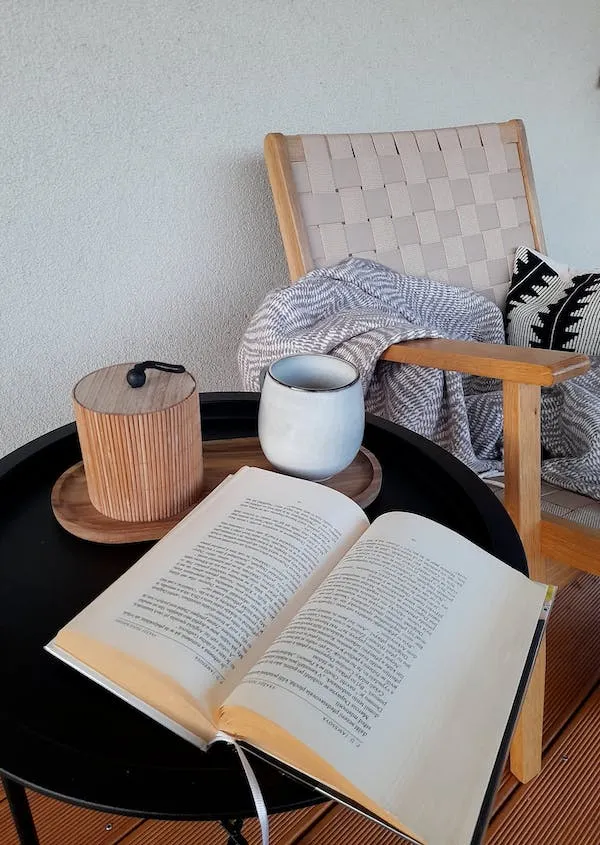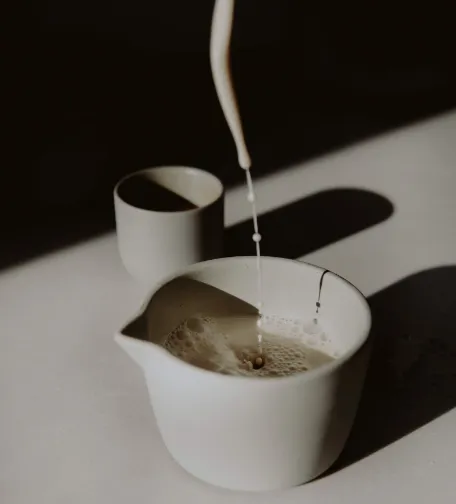Tea and Stress Relief: Can a Cup of Tea Calm Your Mind?

In the hustle and bustle of modern life, stress has become an all-too-familiar companion for many of us. From demanding work schedules to personal responsibilities and unexpected challenges, it’s easy to find ourselves caught in the relentless grip of stress. As we search for ways to find solace and balance, the soothing ritual of sipping a cup of tea has emerged as a popular avenue for stress relief.
But can a simple cup of tea really calm our minds? Let’s delve into the world of tea and its potential as a stress-relieving elixir.
The Ritual of Tea: A Pause in Time
Imagine this: you’re seated comfortably, cradling a warm cup of tea between your hands. The steam rises gently, carrying with it the fragrant aroma of herbs, leaves, or spices. As you take that first sip, a sense of tranquillity washes over you, momentarily transporting you away from the chaos of life’s demands. This is the magic of the tea-drinking ritual – a pause in time that offers both physical comfort and a mental respite.
Tea-drinking rituals have been an integral part of cultures around the world for centuries. From the serene Japanese tea ceremony to the cosy British afternoon tea, the act of preparing and savouring tea encourages mindfulness and presence. These rituals force us to slow down, focus on the present moment, and disconnect from the constant stream of thoughts that fuel our stress. As we engage our senses in the process – from the selection of tea leaves 4to the sound of water boiling and the feel of the cup in our hands – we invite a momentary escape from our worries.
While the ritual itself plays a pivotal role in stress relief, the ingredients found in tea also contribute to its calming effects. Certain compounds present in tea, such as L-theanine, flavonoids, and polyphenols, have been studied for their potential to impact stress and relaxation.
L-theanine, an amino acid primarily found in tea leaves, is often praised for its ability to induce relaxation without drowsiness. It’s believed to work by increasing the production of gamma-aminobutyric acid (GABA), a neurotransmitter that promotes a calming effect on the brain. This explains why a cup of tea can leave us feeling both alert and calm, a unique combination that other caffeinated beverages often struggle to achieve.
Flavonoids and polyphenols, on the other hand, possess antioxidant properties that might help counteract the physiological effects of stress on the body. These compounds 5have been linked to improved blood flow, reduced inflammation, and even potential neuroprotective effects. While more research is needed to establish conclusive links between these compounds and stress relief, their presence in tea certainly adds to its potential benefits.
Choosing Your Cup: Exploring Varieties of Tea
When it comes to choosing a tea for stress relief, the options are as diverse as the cultures that celebrate them. Different varieties of tea offer a spectrum of flavours, aromas, and potential health benefits. Let’s explore a few popular choices:
Green Tea: Known for its delicate flavour and vibrant green colour, green tea is rich in L-theanine and antioxidants. It’s often touted for its potential to boost mental clarity and relaxation. The ritual of preparing and enjoying 8a cup of green tea can be a calming experience in itself.
Chamomile: This caffeine-free herbal tea is a classic choice for winding down before bedtime. Chamomile is renowned for its mild, apple-like flavor and its potential to promote relaxation and ease anxiety.
Lavender: Lavender tea combines the soothing properties of the herb with the warmth of 1a cup of tea. The gentle aroma of lavender has been associated with stress reduction and improved mood.
Peppermint: Invigorating and refreshing, peppermint tea is not only delightful to the taste buds but also to the senses. Its menthol content can have a relaxing effect on muscles, making it a great choice for unwinding.
Black Tea: While black tea contains more caffeine than green tea, it still contains L-theanine and other beneficial compounds. The moderate caffeine content can provide a gentle energy lift while the L-theanine promotes relaxation.
The Bottom Line: A Cup of Comfort
In a world that often feels like a whirlwind of responsibilities and pressures, finding moments of tranquility is essential for maintaining our well-being. The act of brewing and sipping tea, with its centuries-old traditions and scientifically supported compounds, can be a powerful tool in the pursuit of stress relief. It’s a reminder to slow down, to savour the present, and to allow ourselves a few moments of respite.
So, can a cup of tea truly calm your mind? The answer lies not just in the chemical composition of the leaves but also in the intention and mindfulness that you bring to the experience. A cup of tea can be more than the sum of its parts; it can be a gesture of self-care, a moment of connection, and a gentle reminder that amidst the chaos, there’s always an opportunity to find peace, one sip at a time.
The Ultimate Guide to Herbal Teas and Their Healing Powers

































